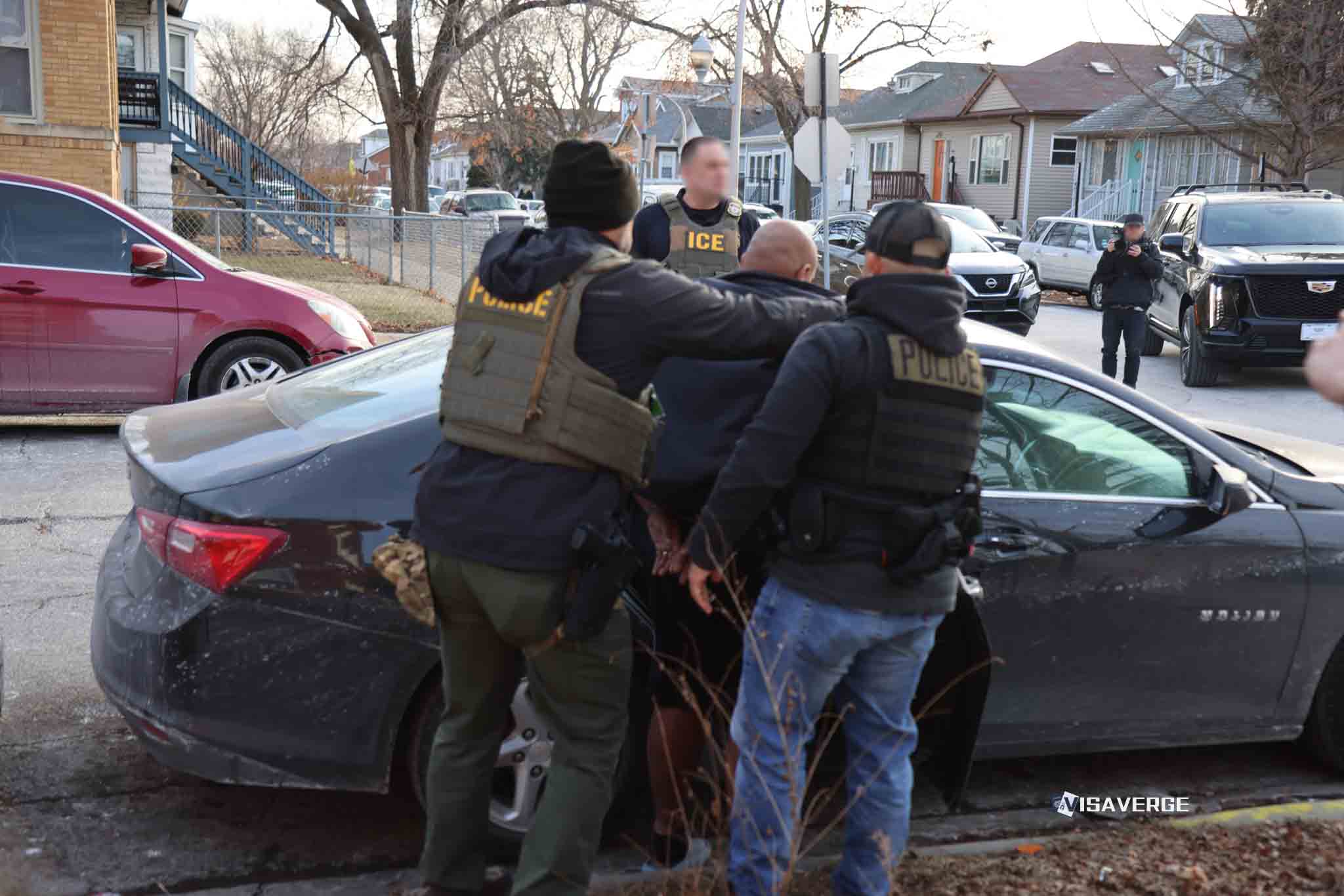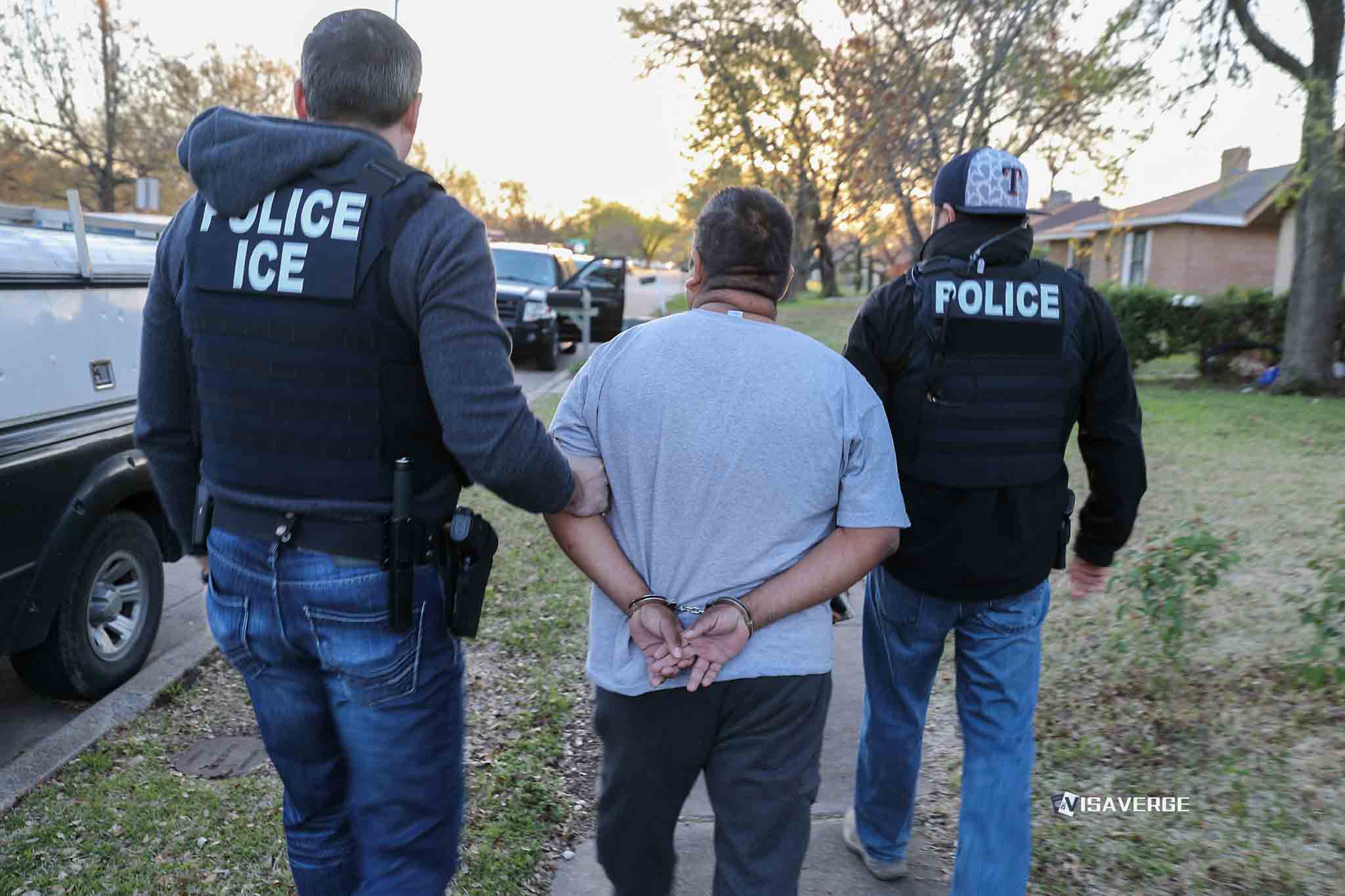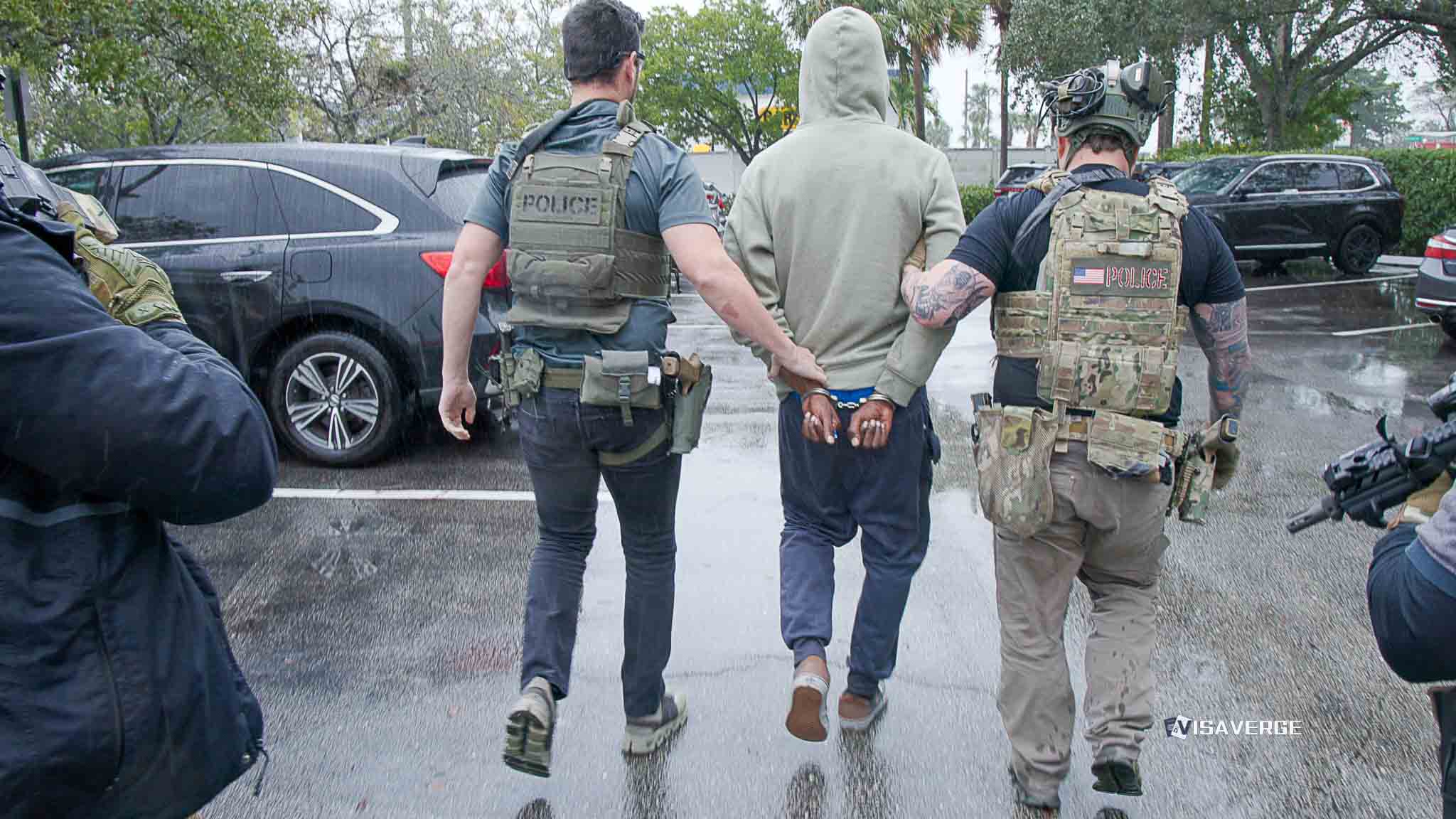Key Takeaways
• Supreme Court ruled Abrego Garcia’s removal to El Salvador illegal due to a valid withholding order.
• DOJ plans new deportation proceedings excluding El Salvador after Garcia’s return to the U.S. in June 2025.
• Case highlights tensions between judicial authority, national security, and immigrant legal protections in deportation.
On April 10, 2025, the Supreme Court issued a unanimous decision that directly affects Kilmar Armando Abrego Garcia’s future in the United States 🇺🇸. The Court ruled that his removal to El Salvador 🇸🇻 was illegal, as he was protected by a withholding order. This ruling has set off a series of legal and political debates about deportation, the role of the courts, and the rights of immigrants facing removal.
Abrego Garcia’s case is now at the center of national attention, raising questions about how the United States 🇺🇸 enforces deportation orders and respects legal protections. The Supreme Court’s involvement has not only shaped the outcome for Abrego Garcia but may also influence how similar cases are handled in the future.

Supreme Court Decision: What Happened and Why It Matters
The Supreme Court’s ruling on April 10, 2025, was clear: Abrego Garcia’s removal to El Salvador 🇸🇻 violated the law. The Court found that a valid withholding order was in place, which should have stopped his deportation. Withholding orders are legal protections that prevent the United States 🇺🇸 from sending someone to a country where they could face danger, such as persecution or torture.
Key points from the Supreme Court’s decision:
– The removal of Abrego Garcia to El Salvador 🇸🇻 was illegal because of the withholding order.
– The government was ordered to return him to the United States 🇺🇸.
– The Court emphasized the importance of following legal protections and respecting the judiciary’s authority.
According to analysis by VisaVerge.com, the Supreme Court’s decision highlights the need for strict adherence to court orders in immigration cases. The ruling sends a message that the executive branch must respect judicial oversight, especially when it comes to the safety and rights of individuals facing deportation.
The Timeline: From Removal to Return
March 15, 2025: Abrego Garcia was removed from the United States 🇺🇸 to El Salvador 🇸🇻, despite the withholding order that should have protected him.
April 7, 2025: The U.S. District Court for the District of Maryland ordered the government to bring Abrego Garcia back to the United States 🇺🇸 by this date.
April 10, 2025: The Supreme Court affirmed the lower court’s order, making it clear that the removal was illegal and must be corrected.
June 2025: Abrego Garcia was finally returned to the United States 🇺🇸, but questions remain about his legal status and what happens next.
July 7, 2025: A hearing before Judge Paula Xinis revealed ongoing disputes between Abrego Garcia’s lawyers and the Justice Department (DOJ) about his future. The DOJ stated plans to start new deportation proceedings, this time aiming to send him to a country other than El Salvador 🇸🇻.
Legal Arguments: What Each Side Says
Abrego Garcia’s Lawyers
Abrego Garcia’s legal team argues that his return to the United States 🇺🇸 should restore his original status in Maryland. They point out that he lived in the country for a decade without being charged with any crime. They believe the government’s illegal removal should not erase his rights or protections.
Key arguments from his lawyers:
– The illegal deportation should be fully reversed, including restoring his previous status.
– Abrego Garcia should not face new deportation proceedings based on the same facts.
– The government must respect court orders and legal protections.
Justice Department (DOJ)
The DOJ claims that returning Abrego Garcia to the United States 🇺🇸 fulfills the Supreme Court’s requirements. However, they plan to start new deportation proceedings if he is released from incarceration in Tennessee. The DOJ says they will try to deport him to a country other than El Salvador 🇸🇻, since the withholding order only covers that country.
Key points from the DOJ:
– The return to the United States 🇺🇸 meets the court’s order.
– New deportation proceedings are allowed, as long as they do not involve El Salvador 🇸🇻.
– The government must balance court orders with national security and immigration enforcement.
Political Figures
President Trump and his allies have made strong statements about Abrego Garcia’s case. They have often criticized the idea of allowing him to return to the United States 🇺🇸 and have used the case to support tougher immigration policies. Their comments have added to the political tension surrounding the case.
The Role of Withholding Orders in Deportation Cases
A withholding order is a legal protection that stops the United States 🇺🇸 from deporting someone to a country where they could face harm. This protection is different from asylum, but both are meant to keep people safe from persecution or torture.
How withholding orders work:
– They are granted by immigration judges when there is evidence that a person would face danger in their home country.
– The order only blocks deportation to a specific country (in this case, El Salvador 🇸🇻).
– The government can still try to deport the person to another country, if possible.
In Abrego Garcia’s case, the withholding order should have stopped his removal to El Salvador 🇸🇻. The Supreme Court’s decision made it clear that ignoring this order was illegal.
For more information about withholding of removal, readers can visit the U.S. Citizenship and Immigration Services (USCIS) official page on Withholding of Removal.
The Impact on Abrego Garcia and His Family
Abrego Garcia’s case is not just about legal arguments and court orders. It has real consequences for him and his family. He lived in Maryland for ten years, building a life in the United States 🇺🇸. His sudden removal to El Salvador 🇸🇻 separated him from his loved ones and put his safety at risk.
Personal impacts include:
– Separation from family and community in Maryland.
– Fear and uncertainty about his future and safety.
– Ongoing legal battles that affect his mental and emotional well-being.
His lawyers argue that the government’s actions have caused lasting harm and that he deserves to have his status restored.
National Security Concerns and Allegations
The U.S. government has raised concerns about Abrego Garcia’s alleged ties to MS-13, a group labeled as a terrorist organization. These allegations have played a major role in the government’s push to remove him from the country.
Points to consider:
– The government has not charged Abrego Garcia with any crime during his time in the United States 🇺🇸.
– Allegations alone do not remove legal protections like withholding orders.
– The case raises questions about how to balance national security with individual rights and due process.
Judge Paula Xinis and other legal experts have noted that even when national security is at stake, the government must follow the law and respect court orders.
The Broader Policy Debate: Deportation and Judicial Oversight
Abrego Garcia’s case highlights bigger issues in U.S. immigration policy. It shows how difficult it can be to enforce deportation orders while also respecting legal protections and court decisions.
Key policy questions include:
– How should the government handle cases where a person is protected by a withholding order?
– What happens when the executive branch and the courts disagree about immigration enforcement?
– How can the United States 🇺🇸 balance national security with the rights of immigrants?
The Supreme Court’s ruling in this case may shape future policy discussions and legal standards for similar cases.
International Relations and U.S. Reputation
The illegal deportation of Abrego Garcia to El Salvador 🇸🇻 has also affected the United States’ 🇺🇸 relationships with Central American countries. Sending someone back in violation of a court order can damage trust and cooperation on immigration and security issues.
Possible effects on international relations:
– Strained ties with El Salvador 🇸🇻 and other Central American countries.
– Challenges in working together on border security and migration.
– Questions about the United States’ 🇺🇸 commitment to human rights and the rule of law.
Diplomats and experts warn that such actions can make it harder for the United States 🇺🇸 to work with other countries on shared problems.
What Happens Next? The Future of Abrego Garcia’s Case
As of July 2025, Abrego Garcia’s future remains uncertain. The DOJ plans to start new deportation proceedings, but only to a country other than El Salvador 🇸🇻. His lawyers are fighting to restore his status in Maryland and prevent further removal.
Possible next steps:
– Further court hearings to decide whether new deportation proceedings are allowed.
– Legal arguments about whether his rights were fully restored after his return.
– Ongoing political debate about the case and its impact on immigration policy.
The outcome will depend on how the courts interpret the Supreme Court’s ruling and whether the government follows legal procedures.
Implications for Other Immigrants
Abrego Garcia’s case is not unique. Many immigrants in the United States 🇺🇸 face similar challenges, especially those with withholding orders or other legal protections. The Supreme Court’s decision may set a precedent for how these cases are handled in the future.
What other immigrants should know:
– Withholding orders provide important protection but do not guarantee permanent status.
– The government can still try to deport someone to a third country if it is safe to do so.
– Legal representation and knowledge of one’s rights are critical in complex immigration cases.
Immigration advocates urge anyone facing removal to seek help from qualified lawyers and to stay informed about their legal options.
Solution-Oriented Guidance: What Can Be Done?
For immigrants and their families, cases like Abrego Garcia’s show the importance of understanding legal protections and acting quickly when facing deportation. Here are some practical steps:
- Know your rights: Learn about withholding orders and other forms of protection. The USCIS website offers helpful information.
- Get legal help: Work with experienced immigration lawyers who can fight for your rights in court.
- Stay informed: Follow updates from trusted sources like VisaVerge.com and official government sites.
- Document everything: Keep records of court orders, legal filings, and communications with immigration authorities.
- Advocate for policy change: Support organizations working to protect immigrant rights and push for fairer policies.
Quotes from the Case
Judge Paula Xinis, during the July 7, 2025, hearing, expressed concern about the DOJ’s shifting positions:
“The government’s approach raises serious questions about respect for court orders and the rights of individuals facing removal.”
Abrego Garcia’s lawyers stated:
“Our client has lived safely in the United States 🇺🇸 for a decade. The government’s illegal actions should not erase his rights or protections.”
A DOJ spokesperson responded:
“We are committed to following the Supreme Court’s decision while also protecting national security and enforcing immigration laws.”
Conclusion: The Lasting Impact of the Supreme Court’s Decision
The Supreme Court’s ruling in Abrego Garcia’s case has far-reaching effects. It reinforces the importance of legal protections for immigrants and the need for the government to respect court orders. The case also highlights the ongoing debate about deportation, national security, and the rights of individuals in the United States 🇺🇸.
As the legal process continues, the outcome will shape not only Abrego Garcia’s future but also the way similar cases are handled across the country. Immigrants, advocates, and policymakers will be watching closely to see how the courts and the government respond to this important decision.
For anyone facing deportation or seeking to understand their rights, staying informed and seeking legal help remain the best ways to protect themselves and their families.
Learn Today
Supreme Court → The highest U.S. court that makes final decisions on important legal issues including immigration cases.
Withholding Order → A legal directive preventing deportation to a country where deportees face danger or persecution.
Deportation → The official removal of a person from a country for violating immigration laws.
DOJ (Department of Justice) → U.S. government agency responsible for legal affairs and enforcing immigration laws.
Immigration Judge → An official who decides immigration cases including asylum and withholding orders.
This Article in a Nutshell
On April 10, 2025, the Supreme Court ruled Abrego Garcia’s deportation illegal due to a withholding order. This decision challenges deportation enforcement, emphasizing judicial authority and immigrant protections amid political debate about immigration policy and national security.
— By VisaVerge.com













